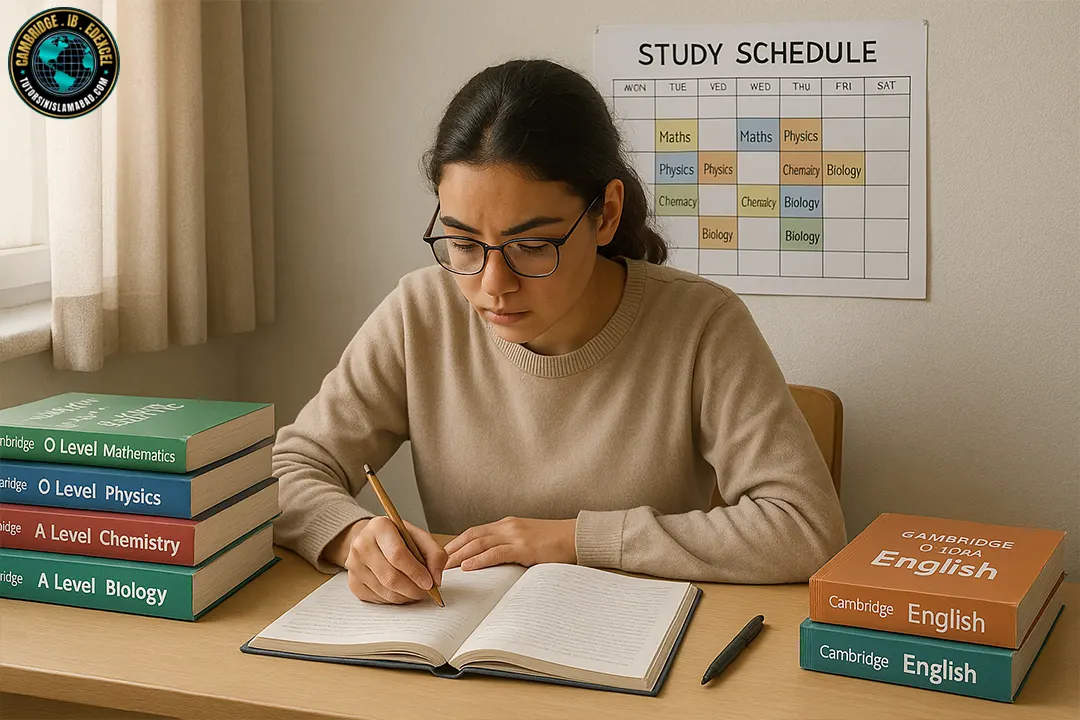
Preparing for Cambridge O Level and A Level exams can feel overwhelming due to the depth and breadth of the syllabus. However, effective revision techniques can make a significant difference in how well students retain information and perform in exams. Whether you're aiming for A* grades or simply looking to improve, adopting proven strategies can enhance your productivity and confidence.
This guide explores the best revision techniques specifically suited for Cambridge O and A Level students, covering planning, studying, and review methods.
1. Understand the Exam Structure and Syllabus
Before starting any revision, it's essential to understand the syllabus requirements and exam format fully. Every subject has a syllabus published by Cambridge International Examinations (CIE), which outlines:
- Key learning outcomes
- Assessment objectives
- Weightage of each topic
- Paper structure (e.g., MCQs, essays, structured questions)
Action Step: Download and review the latest syllabus for each subject and highlight the sections you're confident in vs those that need more work.
2. Make a Realistic Revision Timetable
One of the most effective ways to stay on track is by making a revision schedule. Avoid cramming and focus on consistency over intensity.
- Use a calendar to plan 4–6 weeks ahead of exams.
- Allocate more time to subjects or topics you struggle with.
- Break your sessions into 25-45 minute blocks with 5–10 minute breaks in between (Pomodoro Technique).
- Set specific goals (e.g., "Revise cell division + solve past paper Q3 from 2019").
- Pro tip: Leave a buffer for emergency or backup study days in case something disrupts your routine.

3. Use Active Recall and Spaced Repetition
Active recall and spaced repetition are two of the most scientifically backed revision methods.
Active Recall
- This involves retrieving information from memory rather than just re-reading or highlighting text.
- Use flashcards (physical or apps like Anki).
- Write answers to past paper questions without looking at your notes.
- Teach the concept to someone else.
Spaced Repetition
- Instead of reviewing the same material every day, space out revisions so your brain has time to forget and relearn.
Example:
- Day 1 – New topic
- Day 3 – Review
- Day 7 – Review again
- Day 14 – Final review
4. Solve Past Papers
Practising past papers is one of the most direct ways to prepare for your exams.
- Get familiar with the exam format.
- Understand the marking scheme and examiner expectations.
- Improve time management.
- Identify weak areas.
Action Step: Download at least 5 years' worth of past papers and marking schemes from the Cambridge website or trusted resources. Time yourself when attempting them under exam-like conditions.
5. Practice with Mark Schemes and Examiner Reports
Don't just solve questions—analyse the answers using mark schemes and examiner feedback.
- Specific phrasing and keywords that earn marks
- Common mistakes made by students
- What examiners look for in high-level responses
This helps you refine your answer-writing technique and avoid common traps.
6. Mind Maps and Visual Tools
Mind maps help in organising complex information in a visually engaging way. They're especially useful for subjects like biology, economics, and geography.
- Create topic-based mind maps showing how concepts interrelate.
- Use colour coding to separate subtopics or levels of importance.
- Tip: Don't just copy diagrams—create your own from memory, then compare with notes.
7. Join Group Study Sessions (with Structure)
Studying in groups can be motivating and helpful, when done right.
- Set a topic or goal before each session
- Allocate time slots for each member to explain a concept
- Test each other with questions
- Review different approaches to a difficult topic
Avoid turning group sessions into social hangouts—stay focused and time-bound.
8. Take Care of Yourself: Sleep, Nutrition, and Breaks
Revision is not only mental—your physical well-being affects your performance.
- Sleep at least 7–8 hours regularly.
- Eat brain-friendly foods like nuts, berries, whole grains, and proteins.
- Take short breaks to refresh your focus.
- Don't over-caffeinate—hydration matters more.
A well-rested and healthy body supports better memory retention and reduced exam stress.
9. Use Online Resources and Tutoring Support
Sometimes, textbooks alone aren't enough. Leverage the power of online videos, quizzes, and tutoring.
- YouTube (CrashCourse, Khan Academy, etc.)
- Revision apps (Seneca, Quizlet)
- Online tutors (especially if you're in areas like Islamabad, where many high-quality Cambridge tutors are available)
Tutors can provide personalised guidance, track your progress, and give you exam-specific tips.
Final Thoughts
There is no one-size-fits-all approach when it comes to Cambridge O/A Level revision. The key is to combine proven techniques like active recall, spaced repetition, past paper practice, and self-testing—then tailor them to your strengths. Consistency, discipline, and regular evaluation will make your revision more effective and your results more rewarding.
Whether you're working alone or with a tutor, preparing with the right techniques can help you build confidence and aim for excellence.
FAQs
A: You should ideally start at least 3–4 months in advance to allow time for learning, revising, and practising past papers without stress.
Q2: Are 12-hour revision days effective?A: Not really. Studying smart is better than studying long. Break your study into focused sessions with short breaks and avoid burnout.
Q3: How many past papers should I solve?A: Aim for at least 5–10 full papers per subject, including different years and paper types. Make sure to review them using the mark schemes.
Q4: What is the best revision technique for science subjects?A: Use a combination of active recall, diagrams, and past paper practice. Also, teaching others or talking through your answers helps solidify understanding.
Q5: How do I stay motivated during revision?A: Set small daily goals, track progress, reward yourself after completing tough tasks, and maintain a balance between study and rest.
